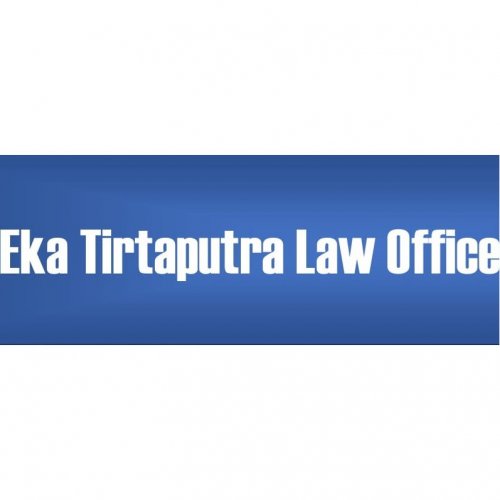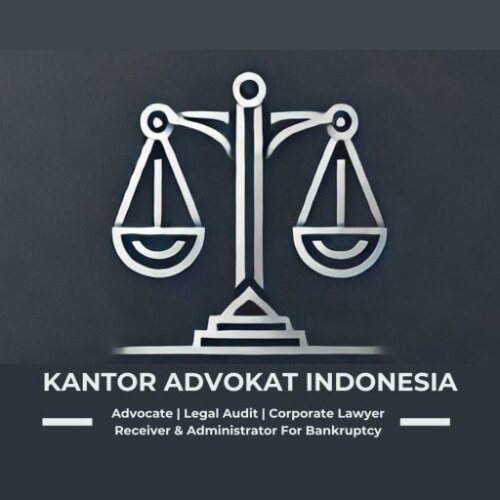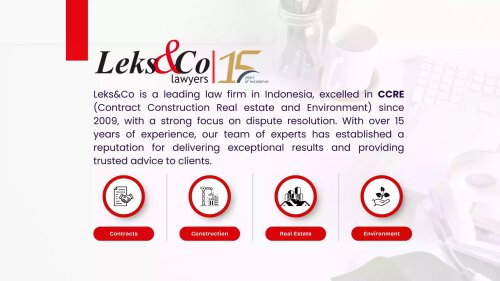Best Mining Law Lawyers in Indonesia
Share your needs with us, get contacted by law firms.
Free. Takes 2 min.
Or refine your search by selecting a city:
List of the best lawyers in Indonesia
About Mining Law in Indonesia
Mining Law in Indonesia governs the exploration, exploitation, processing, and export of minerals and coal. This field of law is shaped by a mix of statutes, regulations, and policies developed by the Indonesian government to ensure sustainable mining activities, protect the environment, and promote investment. The cornerstone of Indonesian mining law is Law Number 4 of 2009 on Mineral and Coal Mining (often referred to as the Mining Law), as amended by the Job Creation Law of 2020. These laws define the legal framework for the issuance of mining licenses, obligations for environmental management, royalty payments, divestment requirements, and relationships with local communities.
Why You May Need a Lawyer
There are several situations where legal guidance is crucial in Indonesian mining operations:
- Securing the correct type of mining license or permit
- Negotiating contracts or joint ventures between foreign and local partners
- Ensuring compliance with environmental and safety regulations
- Handling disputes with local communities, landowners, or business partners
- Managing labor issues and understanding workers' rights in the mining sector
- Understanding tax and royalty obligations in mining operations
- Addressing government audits or investigations
- Dealing with divestment requirements for foreign investors
- Responding to regulatory changes that may affect your mining project
Given the complexity and evolving nature of Indonesian mining law, support from an experienced lawyer can help prevent costly mistakes and protect your interests.
Local Laws Overview
The key Indonesian laws and regulations governing mining include:
- Law No. 4 of 2009 on Mineral and Coal Mining (as amended by Law No. 3 of 2020 and Government Regulation No. 96 of 2021)
- The Job Creation Law (Law No. 11 of 2020), which impacts mining licensing, environmental obligations, and divestment procedures
- Government Regulation No. 23 of 2010 on Implementation of Mineral and Coal Mining Business Activities
- Minister of Energy and Mineral Resources (MEMR) regulations regarding licensing, mineral and coal exports, reclamation, and post-mining obligations
- Requirement for mining business permits (IUP, IUPK, and others) issued under a "single licensing system"
- Restrictions on export of raw minerals to encourage local processing (smelter construction)
- Environmental management and reclamation obligations, including mandatory post-mining cleanup
- Provisions requiring foreign investors to divest shares to Indonesian entities over time
- Regulations affecting land acquisition, local community interests, and customary (adat) land considerations
Failure to comply with these requirements can lead to administrative sanctions, suspension or revocation of mining permits, and potential criminal liability.
Frequently Asked Questions
What are the main types of mining licenses available in Indonesia?
There are several types of mining licenses, including Exploration Mining Business Permits (IUP Eksplorasi), Production Operation Mining Business Permits (IUP Operasi Produksi), and Special Mining Business Permits (IUPK) for areas with specific characteristics or strategic importance.
Can foreign companies own mining projects in Indonesia?
Yes, but there are share divestment requirements. Foreign companies must gradually divest a percentage of their ownership to Indonesian entities after a certain period.
What is the process for obtaining a mining license in Indonesia?
The process involves submitting an application to the Ministry of Energy and Mineral Resources or a relevant regional authority, demonstrating technical and financial capacity, conducting environmental assessments, and obtaining approval through the Online Single Submission (OSS) system.
Are there environmental regulations specific to mining?
Yes, mining companies are required to conduct Environmental Impact Assessments (AMDAL), implement reclamation and post-mining plans, and meet strict environmental standards set by the government.
What are the royalty rates for mining in Indonesia?
Royalties vary by commodity. Coal, for example, is subject to different royalty rates depending on calorific value and mining method. Other minerals have their own schedules and government policies frequently update these rates.
Is land acquisition difficult for mining projects?
Land acquisition can be complex, especially if it involves customary (adat) land or areas of high community interest. Proper stakeholder engagement and legal processes are critical to avoid disputes.
What happens if a mining company violates the law?
Violations can result in administrative sanctions, fines, suspension or revocation of permits, and in some cases, criminal prosecution against responsible parties.
Can mining companies export raw minerals?
Exports of certain unprocessed minerals are restricted or banned. The government encourages value addition and requires the development of local processing facilities (smelters).
How do changes in law or regulation affect existing mining contracts?
Depending on the contract terms, existing permits or contracts may be subject to new regulations. This can involve renegotiation or adjustment to comply with current law and policies.
Where can I check the validity of a mining permit?
Mining permit validity can be checked with the Ministry of Energy and Mineral Resources, regional mining offices, or through official online portals such as the Online Single Submission (OSS) platform.
Additional Resources
For further information or assistance, consider reaching out to:
- Ministry of Energy and Mineral Resources (MEMR) - Directorate General of Mineral and Coal
- Indonesian Investment Coordinating Board (BKPM)
- Regional offices of MEMR
- Indonesian Mining Association (IMA)
- Legal aid organizations with experience in mining and environmental law
- Chambers of Commerce representing mining enterprises
Next Steps
If you need legal assistance in Indonesian mining law, consider the following steps:
- Gather all relevant documents related to your mining activities or plans, including permit applications, contracts, and correspondence with authorities
- Identify the specific legal issues or questions you need help with
- Contact a qualified legal professional with expertise in Indonesian mining law
- Consult with stakeholders, including local communities and government offices, as guided by your legal adviser
- Understand your ongoing compliance obligations and set up systems for timely reporting and documentation
Early legal advice can help you navigate complex regulations, avoid violations, and increase the success and sustainability of your mining operations in Indonesia.
Lawzana helps you find the best lawyers and law firms in Indonesia through a curated and pre-screened list of qualified legal professionals. Our platform offers rankings and detailed profiles of attorneys and law firms, allowing you to compare based on practice areas, including Mining Law, experience, and client feedback.
Each profile includes a description of the firm's areas of practice, client reviews, team members and partners, year of establishment, spoken languages, office locations, contact information, social media presence, and any published articles or resources. Most firms on our platform speak English and are experienced in both local and international legal matters.
Get a quote from top-rated law firms in Indonesia — quickly, securely, and without unnecessary hassle.
Disclaimer:
The information provided on this page is for general informational purposes only and does not constitute legal advice. While we strive to ensure the accuracy and relevance of the content, legal information may change over time, and interpretations of the law can vary. You should always consult with a qualified legal professional for advice specific to your situation.
We disclaim all liability for actions taken or not taken based on the content of this page. If you believe any information is incorrect or outdated, please contact us, and we will review and update it where appropriate.
Browse mining law law firms by city in Indonesia
Refine your search by selecting a city.
















